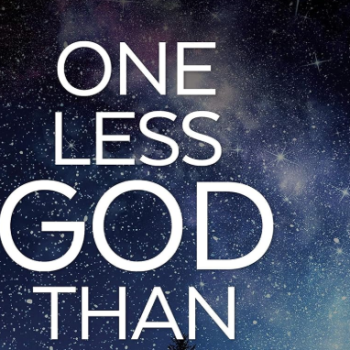Another misapprehension we have about enlightenment is that it is only for people with special enlightenment genes—otherworldly, saintly types. We look at ourselves and say, "Well, I could never be enlightened because I still turn into a psychotic mess before my period, and even though I'm 30 years old I can't get along with my mother and I really like to party and its hard for me to spend a lot of time alone, and besides, I think I might be addicted to shopping." We recognize our human qualities, our human foibles, our human desires, and we say, "I can't have this and be enlightened."
The truth is, we can. In fact, we should. Enlightenment, according to the yogic traditions, is one of the legitimate goals of human life, and despite centuries of propaganda to the contrary, it is something that can be sought, and practiced, by a regular person in the context of a so-called normal life. Moreover, when we begin to consider enlightenment a possibility, and to practice some of the attitudes that are classically considered to be enlightened, these attitudes create a spaciousness in our minds and in our lives that is powerfully positive. To put it bluntly, practicing enlightened attitudes will probably make you feel better.
Imagine That!
For me, it was fairly radical to realize that I could actually practice enlightenment. Like most people, when I first encountered the idea it seemed impossibly far away and unrealistic. Two things changed my viewpoint. One was being around my teacher, who gave every indication of being enlightened, and who—along with radiating electrical currents of love and compassion—seemed to be having an extremely good time.
But equally important was my discovery of one of the core practices of the yoga-tantra tradition called bhavana, or active imagination. Bhavana is a practice in which you use your mind and imagination to create an inner experience of Oneness, or to identify yourself with an enlightened quality, or contemplate how an enlightened person would react to the presence of an object of desire, say, or an enemy. The idea behind such a practice is that by using your mind to hold enlightened ideas, and using your imagination to "pretend" enlightenment, you actually begin to create an inner experience of these states.
I used a series of affirmations based on the Vijnana Bhairava, a Sanskrit meditation text popularized in the West in a book called Zen Flesh, Zen Bones. "Everything inside and outside is an aspect of the divine," I would think. "All this (the computer, the rug, the sound of the TV in the next room) are manifestations of my own consciousness" or "Everything is my own Self."
I soon discovered that these practices made a palpable difference in my moment-to-moment state of mind. My best antidote to feeling bored, insecure, or unhappy was to spend a few minutes actively thinking, "Everyone is an aspect of my own consciousness." Not only did this smooth out my internal environment, it also seemed to shift other people's behavior.
Perhaps the most dramatic experience of this happened one Monday in my office. I was anticipating a wrangle with a colleague at work, who was doing everything possible to nix one of my projects. I walked into the office determined to keep up my mantra "All this is my self."
My "enemy" was the first person I saw. I looked at her, noticed my automatic negative reaction, and countered it with the thought "This person is part of my own consciousness. She is an aspect of my own self. We are one." As I held the thought, I felt an inner softening. Suddenly, our eyes locked, and we both smiled. Then she said, "I thought of something that could make your project work." Later, she told me that she had had no intention of sharing her idea with me, but that when our eyes met she had felt an unexpected wave of affection for me, and just had to tell me her idea.
Since I've been doing these practices, this sort of experience has arisen over and over again. When I remember to remember oneness, knots and difficulties tend to disappear. The stroppy computer and the short-tempered store clerk become more helpful when I remember that they are part of my self. People are nicer. I'm nicer. This simple application of enlightened consciousness is a highly practical method for shifting my experience. It dispels negativity like almost nothing else. And then there are the times—sometimes for hours or even days—when the practice of remembering oneness stops being a practice, and becomes a natural awareness that infuses my days.
Dispel Your Happiness Enemies
The way you keep your mind determines the way you experience the world. On one level this is very obvious; we know that when we're angry we tend to attract annoying people and situations, that when we're afraid, we'll run, terrified, from a tree trunk that we're convinced is a menacing mugger. If you follow this insight to its logical conclusion, you can take advantage of the mind's amazing creativity to imagine yourself into states of freedom and joy.





